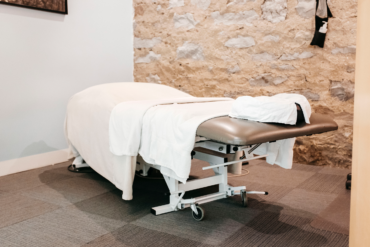We as humans, to a lesser or greater extent, crave routine. If you are like most people, your regular routine has probably been completely disrupted as you have been required to work from home. For most people, a change or absence of routine creates more stress. The majority of the population are still struggling with this and, unwittingly, creating more stress for themselves in an already stressful time.
In order to help you with this important and fairly straight forward stress reliever, here are some top tips.
- Have a weekday schedule and a weekend schedule.
- Monday – Friday, wake up at the same time, eat your meals at the same time and start and stop work at the same times.
- Evenings and Weekends – this is your free time and you should treat it as you normally would.
- Each morning (or previous evening) plan to accomplish a minimum of two tasks in the day. Ideally, one for the morning and one for the afternoon. The satisfaction of accomplishing these will provide you with a mental boost. If one of your tasks has a physical element, you have the added benefit of a physical boost as well.
- Plan some sort of mental break into your day. Exercise, meditate, read or watch a funny clip on TV or Youtube. These mini ‘escapes’ will help to provide you with mental breaks and some variety in how you use your brain and/or body.
- Go to sleep at the same time each night. Being consistent with your bed time (within 30min) will help you to get the next day started the way you like, thereby increasing the success level of your routine.
- Try to limit your intake of Alcohol and junk food. Both of these things will deplete your energy and make you feel more lethargic the following day.
- Take movement breaks as much as you possibly can. Remember that working from home will decrease your overall steps during the day. Eventually this has a negative impact on your health. Movement breaks can be as simple as going for a walk outside, or even standing up to do a few stretches.
Let’s make things more interesting…
’30 Minute Daily Movement Challenge!’
You are challenged to find a minimum of 30 minutes of physical activity a day, over and above what you have been getting. This can be a walk, a run, stairs in your house, biking, or one or both of the virtual classes Totum is providing each day. It can be a 15 min stretch twice a day. Anything!!
So, if this interests you even a little bit, take action right now with these three simple success producing steps!
- In the next five minutes, plan out how you will get that 30 minutes of extra movement each day next week. Build it in right now. It should take no more than five minutes.
- Put a sticky on your bathroom mirror with what you have decided on so it’s front and center when you look there.
- Just as importantly, let someone else know that you are doing it. As you know, the buddy system builds support and accountability.
It’s as simple as that. So, are you up for it? Great! Let’s get moving more this week.
The most important step is the first one. Take five minutes to decide on your Monday-Friday routine and start implementing it right away. You can adjust accordingly as you go forward, but it is important to give your routine a few days to settle in. If you have children, your family as a whole can benefit from the same sort of routine.
By: Tim Irvine, President & Co-founder




